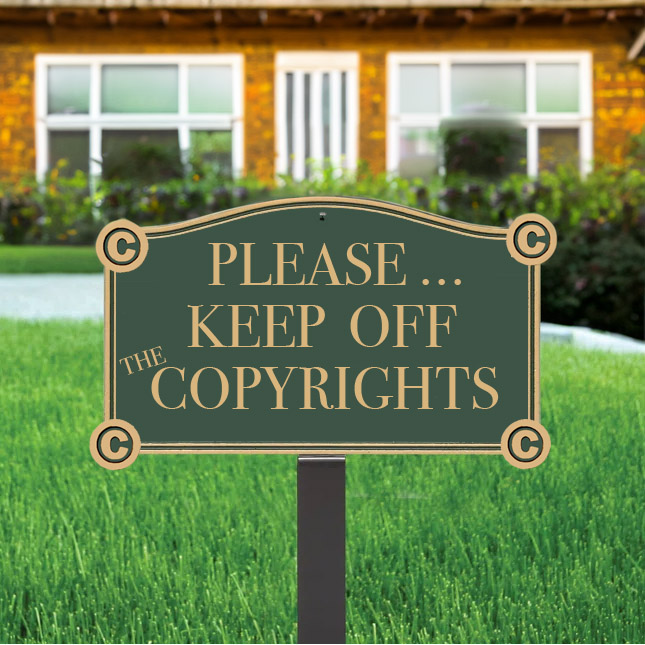QUESTION: Does putting “Copyright 2023” at the bottom of pages on my crafts website protect it from site visitors who download an image or text?
ANSWER: Placing a copyright notice on your website is like sticking a “Keep off the grass” sign on your front lawn. People who respect your property rights will stay off, and those who don’t respect the rules … you’ll just have to chase them away for trespassing. The copyright notice doesn’t add any new weapons to your copyright arsenal (although it used to be very important). And unless you’re willing to follow up a theft with a threatening letter (or better yet, have your attorney do it), it’s unlikely your copyright notice will have much effect on a bad actor bent on copying.
Rephrase the question. Can we suggest you rephrase your question to “What can I do about visitors who download images and content from my website without my permission?” There are technical methods of preventing copying of your text, but these involve website coding, and some techies consider them pointless.
The legal route. Tracking infringers, threatening them with legal action, and dragging them into court for financial punishment has proven to be the most effective way to deal with website theft. Because the government does not enforce copyright, you must hunt down infringers and seek justice, so protecting your website can be expensive. Also, remember that winning your case doesn’t guarantee a return on attorney fees.
Fortify your defenses. If you foresee the possibility that you’ll nab someone copying your website, the following steps will increase your chances of success and remuneration for your troubles.
- Ensure you own or have permission to use your website content.
- Include copyright notice on each of your web pages (It may help prove that the infringer was aware you claimed copyright).
- Include a method for contacting you if someone wants to license content.
- Gather evidence of copying. Prepare side-by-side tables showing your site and the copied site.
- Register your website. If you have a registration in place three months before an infringement occurs, a judge has more freedom in awarding statutory damages – a range of punishments instead of just compensating you for out-of-pocket damages — and attorney fees. You’ll find help on website registration at the Copyright Office.
- If you can afford it, have an attorney write a cease and desist letter.
- If you can afford it, have an attorney file a copyright suit, or if you are a go-getter with a DIY mindset, consider filing a case in the Copyright Small Claims court.
- Review the facts before you make threats. Some who copy may have fair use defenses.
- Pick your fights carefully. Go after those (1) inflicting the most damage competitively or (2) high-profile copying that you can’t ignore.

